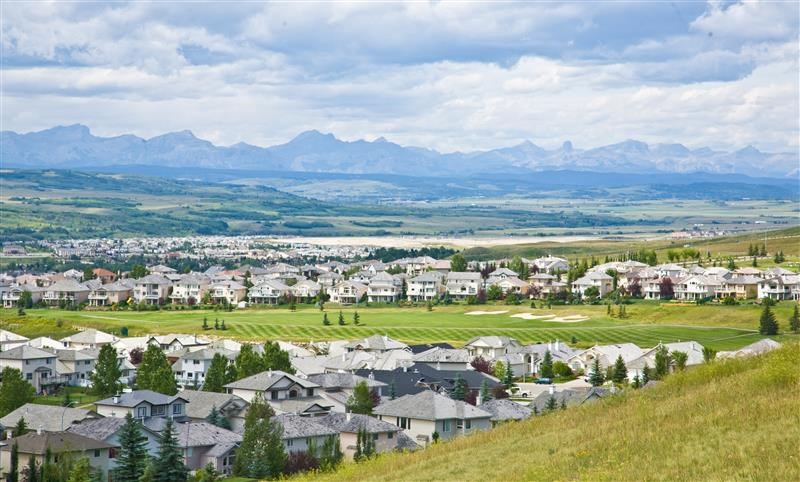Some tough love and some contrition were equally on display in Town of Cochrane council chambers as deliberations on the draft 2024 – 2026 Budget got underway in earnest this week.
Perhaps not surprisingly for the fastest growing town in Alberta, there seems to be something for everyone in these talks, even – surprisingly – an injection of a little dark humour to lighten the mood a bit.
Coun. Marni Fedeyko took no one off guard when, early in the proceedings, she picked up where she left off in last year’s budget debate, clearly stating her opposition to the way the process unfolds.
“This is not our money. It’s taxpayers’ money,” she said, adding that she’s being asked questions by residents about where the money’s going.
“Right now I can’t answer anything," Fedeyko said. "I’m fairly disappointed. I’d have a real difficult time passing this budget unless we get some real clarity on numbers.”
She said a third of the expenditures of the $82.4 million Operating Budget are not defined and warrant further explanation.
It’s the same basic argument she made during last year’s budget discussions and was echoed to a greater or lesser degree by other councillors, (last year and this year) including Tara McFadden and Alex Reed, both of whom said they would need more details on a variety of items before they could lend their support to Administration’s proposed spending.
If adapted as is, the difference between revenues and proposed spending would be $37.6 M, which translates into a 3.45 per cent increase in taxes for a typical resident, three per cent of which is attributed to inflationary cost increases.
And that number would put Cochrane at the top of the list of comparable towns and mid-sized cities in Alberta with the lowest tax increase of them all. Being number one in that metric is the good news.
For the bad news, the glass-half-empty crowd needs only to look backwards to last construction season, when traffic woes and street closures were a constant source of angst for residents and businesses, prompting complaints from residents about how the Town administration handled the disruptions.
It was a long summer for Executive Director, Development & Infrastructure Services Drew Hyndman, and it only got longer on Oct. 21 when a private construction crew broke sewer and water pipes at Riverfront Park, throwing raw sewage into the Bow River and the town into a State of Local Emergency.
That meant more road closures – some neighbourhoods were cut off – and more angry residents.
When Centre Ave. had to be closed down yet again to fix a gas line that was damaged by private contractors on Nov. 8, it must have seemed to Hyndman there was a black cloud following him around.
At the meeting Tuesday, he outlined some of the things Town administration is proposing to address the challenges that surely will resume next spring as the heavy equipment starts up again.
Hyndman first stood up to take full responsibility for how things were handled this year. He said dedicating more funding to public engagement is a recognition his department could have done better this summer.
“Obviously, it didn’t meet our (engagement) expectations in terms of capital project delivery,” he said. “We were working on a number of challenging projects that had impacts to residents and businesses – certainly not making excuses, but we have to lean on our consulting engineer and we also have to communicate much better,” he said.
“We want a very different outcome next year.”
His comments were echoed by CAO Mike Derricott, sounding a lot like a hockey coach after a bad game.
“There’s no sugar coating the fact . . . it was a rough year for capital project delivery, particularly with the public interface,” he said.
When they were done with the mea culpas, Hyndman said a proposed new Capital Projects Management Office in this year’s budget could go a long way towards improving communication during next year’s construction season.
Genung and McFadden said they’d like to see projects take on more of a 24/7 timeline approach, so work can be completed sooner.
“This is an area we struggled in and I’m sure many of our residents feel we flat out failed them,” she said.
She added she hoped for a fulsome discussion on whether or not the Town was adequately resourcing the area of capital projects delivery.
Genung, who has taken on the role of mediator/translator of technical jargon, pointed out that Cochranites should likely be ready for another 10 years of disruptions as it will likely take that long to catch up with overdue projects.
As chair of the discussions, it’s his job to keep things rolling, headed for an eventual vote on a spending package that council can support on Dec. 11. Deliberations continue in all day sessions on Nov. 21 and 23.
Cochranites are encouraged to review the 211-page draft budget and share their feedback. The full budget is posted on cochrane.ca/budget. For more information and updates on the budget deliberation process, visit letstalkcochrane.ca/budget.
During a brief discussion on Town services and user fees, a member of the administration was explaining how and why there was going to be an adjustment to cemetery “service fees” which led to an awkward pause.
Genung used it to expand on his master-of-ceremonies duties.
“So it’s kind of a user fee . . . one you wish to avoid but can’t,” he interjected, prompting some poorly muffled giggles from his colleagues.
“Insert bad joke here . . . no, let’s move on,” he added, opting to not dig himself even deeper.




